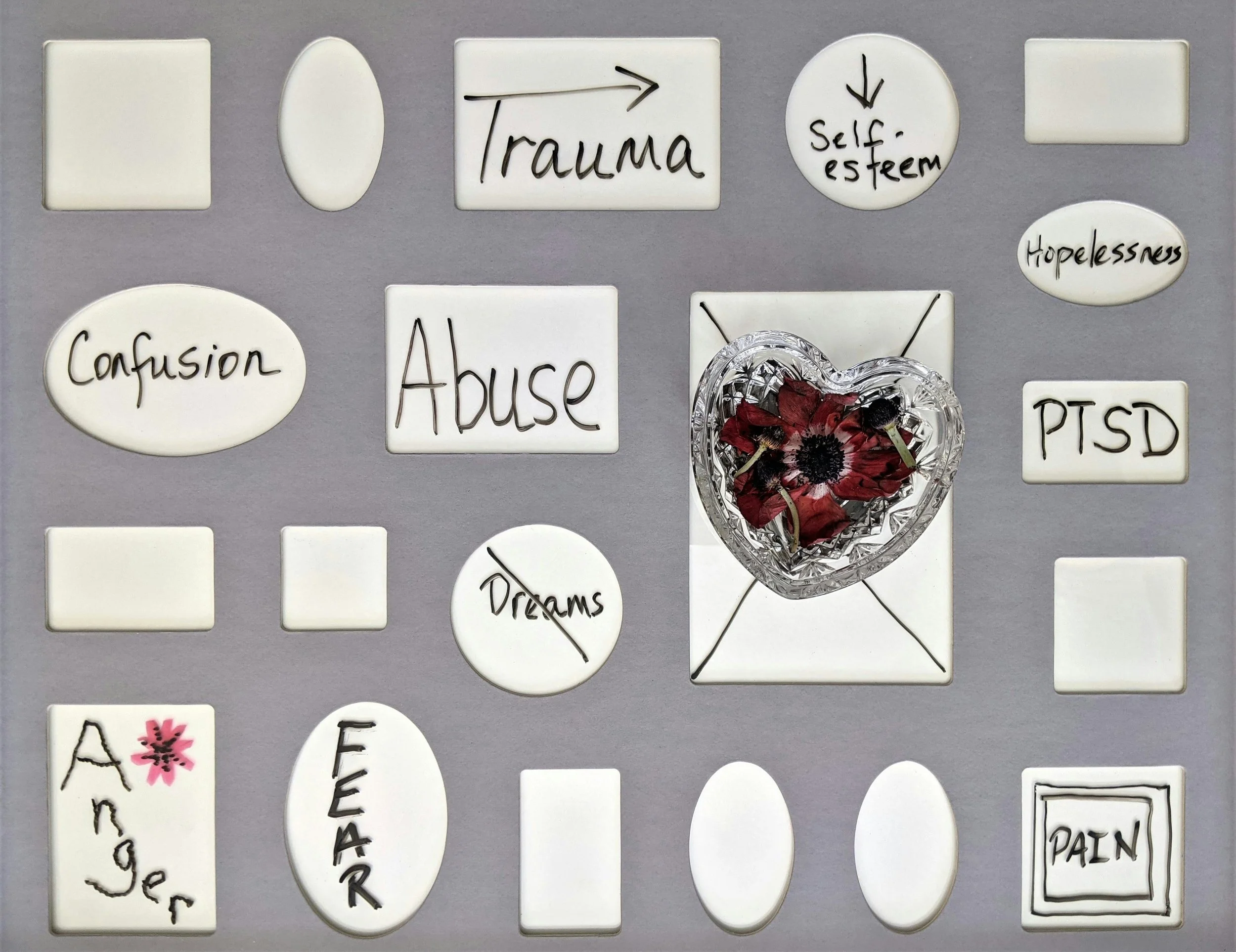The Link Between Childhood Trauma and Chronic Illness
When you think of chronic illness, you might think of genetics, diet, or lifestyle habits. But what if I told you that your childhood experiences—specifically the painful, difficult ones—can play a powerful role in your long-term health?
This isn’t just a theory. It’s science.
In my work as a holistic nutritionist, I often bring up trauma—not because I’m a therapist, but because our nervous system, stress hormones, immune health, and even gut function are deeply affected by what we’ve lived through. And one of the most eye-opening tools that explains this link is the ACE score.
What Is the ACE Score?
ACE stands for Adverse Childhood Experiences. It’s a score based on a study conducted by the CDC and Kaiser Permanente in the 1990s. Researchers looked at over 17,000 adults and discovered a strong link between childhood trauma and the risk of developing a wide range of health problems later in life—including autoimmune disease, heart disease, depression, chronic pain, and more.
The ACE score is calculated based on 10 specific types of adversity experienced before the age of 18. Each “yes” response equals one point. The higher your score, the greater the impact trauma may have had on your physical and emotional health.
The 10 ACE Categories:
Abuse
Physical abuse
Emotional abuse
Sexual abuse
Neglect
4. Physical neglect
5. Emotional neglect
Household Dysfunction
6. Witnessing domestic violence (e.g., seeing a parent get hurt)
7. Living with a parent who had mental illness
8. Having a family member who was incarcerated
9. Substance abuse in the home
10. Divorce or separation of parents
So, if someone grew up in a household where their parents divorced, a caregiver had depression, and there was emotional neglect, their ACE score would be 3.
What Does a High ACE Score Mean?
It doesn’t mean you’re broken, doomed, or destined for disease—but it does mean your nervous system, stress response, and immune health may have been impacted.
Here are just a few findings from ACE research:
Individuals with an ACE score of 4 or more are:
2x more likely to develop heart disease
3x more likely to suffer from chronic respiratory illness
4x more likely to experience depression
10x more likely to have injected street drugs
People with high ACE scores are also at greater risk for:
Fibromyalgia
Chronic fatigue syndrome
Autoimmune conditions
IBS and gut issues
Obesity and metabolic imbalances
Sleep disorders
This doesn’t mean trauma causes these conditions, but it is a significant contributing factor that is often overlooked in conventional medicine.
Why Trauma Matters in Holistic Nutrition
As a holistic nutritionist, I don’t just look at what’s on your plate—I look at what’s happened in your life. Your story matters.
That includes:
The stress your body has carried (sometimes silently) for years
Patterns of nervous system dysregulation that lead to inflammation
Gut-brain imbalances linked to early emotional experiences
Unconscious survival patterns that affect eating habits, blood sugar, and hormone function
Many of my clients come to me after years of struggling with autoimmune diseases, anxiety, fatigue, and other chronic symptoms. They’ve tried every diet. Taken every supplement. And yet something still feels “off.” Often, that “something” is unprocessed trauma—sometimes from childhood.
Incorporating trauma-informed care means I work with your body compassionately, knowing that it may be doing its best to survive based on what it has experienced.
Healing Is Possible
The ACE study also showed something hopeful: awareness is power. When you begin to understand how your early experiences shaped your biology, it opens the door to healing—not just emotionally, but physically.
Here’s how I support clients with high ACE scores and chronic illness:
Nervous system support: Using tools like nutrition, sleep hygiene, and breathwork to calm the stress response
Gut healing: Addressing the gut-brain axis through whole foods, targeted supplements, and reducing inflammatory triggers
Blood sugar and hormone balance: Because stress and trauma directly impact cortisol, insulin, and sex hormones
Emotional nourishment: Encouraging self-compassion, boundaries, and connection—not just food
I also collaborate with therapists or mental health practitioners when appropriate because true healing is multi-layered.
You Are Not Alone
If you have a high ACE score, or if this blog stirred something inside you, I want you to know: you are not your trauma. You are not broken. You are a whole, complex, beautiful human doing your best—and your body wants to heal.
Understanding the role of trauma isn’t about blaming the past. It’s about reclaiming your future—with a holistic approach that honours your story and nourishes your body.
Supporting Resilience from the Start
As we’ve explored, early experiences shape long-term health in profound ways. While we can’t always control what our children go through, we can support their growing bodies and nervous systems with nourishing foundations—starting with what’s on their plate.
That’s why I created [The Nutritionist Mama’s Kids Supplement Guide]—a practical, parent-friendly resource to help you confidently choose high-quality supplements that support your child’s immune health, brain development, and stress resilience.
Whether your child has unique health needs or you simply want to give them the best start possible, this guide offers clear recommendations you can trust.
👉 [Grab your copy here] and help support your child’s health from the inside out.
Alexis Tanner
Registered Holistic Nutritionist (B.A., R.H.N.)
The Nutritionist Mama
Disclaimer - The information in this blog is not intended as medical advice or to diagnose, treat, or cure any condition. Always consult with a qualified healthcare professional before making changes to your diet, lifestyle, or health routine. Individual results may vary.

